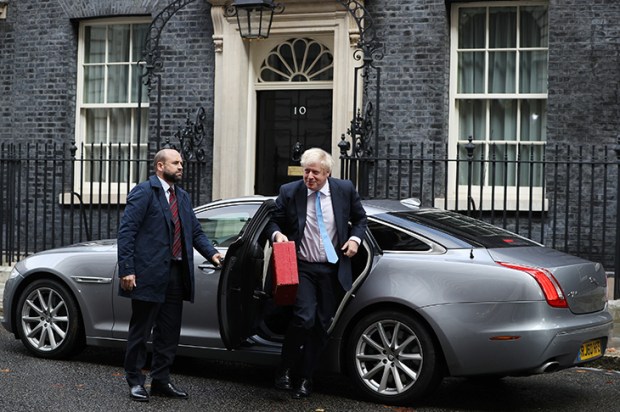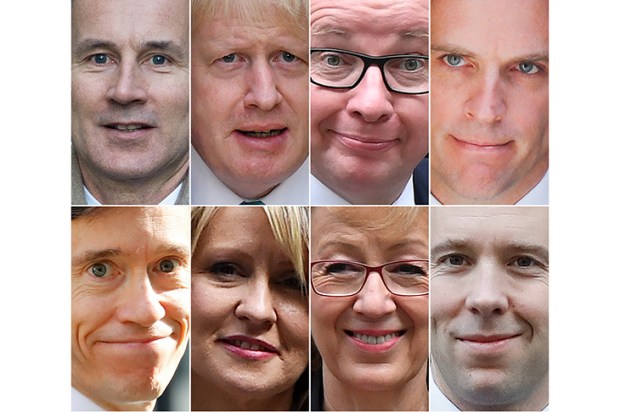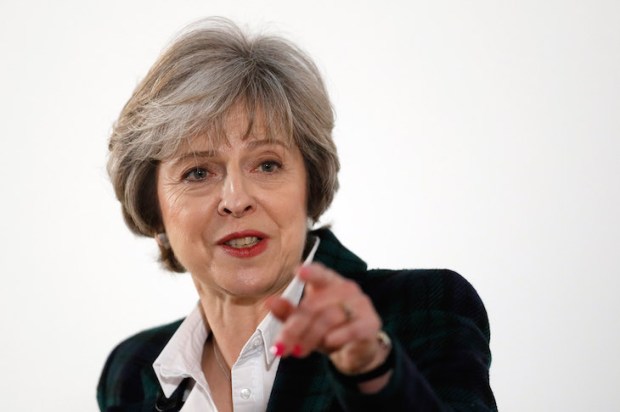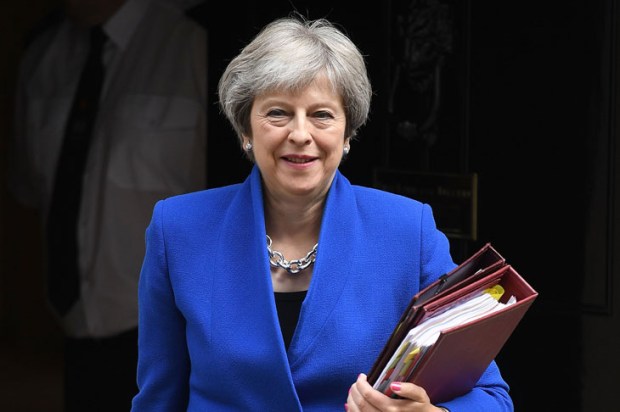Curbs on executive pay, restrictions on foreign takeovers and workers on boards. Not Jeremy Corbyn’s plan for Britain, but ideas raised by Theresa May and put forward for discussion at her cabinet committee on the economy and industrial strategy. Not for 40 years have the Tories had a Prime Minister so firmly on the left of the party.
May joined the Tories before Margaret Thatcher became leader and in many ways she represents a bridge back to the pre-Thatcher era. That is why comparisons between Britain’s two female prime ministers don’t reveal much — they come from very different traditions.
Since Thatcherism took over the party, many Tories have looked to the United States for intellectual inspiration. But May is more of a continental-style Christian Democrat. Her last conference speech was described by one Tory who has known her since Oxford as ‘the most Christian Democrat speech by a Tory leader I’ve ever heard’. A Thatcherite former cabinet minister was less impressed, complaining that it was ‘socialist’.
May’s new ‘shared society’ soundbite is in deliberate contrast with Thatcherism. It is also more different from Cameron’s much-mocked ‘big society’ than it sounds. Cameron was talking about Edmund Burke’s little platoons in action; as the posters at Tory conference used to put it, ‘Big Society, not big state’. May thinks her vision is best served by an active state. Unlike many Conservatives, she doesn’t talk about small government as a good thing. And she doesn’t, she stresses, want a government that will get out of the way, but one ‘that will make the system work’ for the just-about-managing classes.
In just over a week she will set out her ‘industrial strategy’ — a phrase that Tories used to mock. It will not be as interventionist as it might have been. Ministers on the Cabinet committee — led by Philip Hammond, the Chancellor — have argued against some of the more dramatic proposals, and I am told that she’ll publish a consultation paper rather than print proposals. Still, the Prime Minister’s desire to talk about industrial strategy is a reminder that she isn’t a classic Thatcherite.
There is also an element of party politics to all this. May’s team can see how far off to the left Labour has moved under Jeremy Corbyn, taking positions that have distanced it from many of its traditional supporters. They are keen to take advantage of this.
But while Thatcher saw a Labour lurch to the left as an opportunity to pursue otherwise politically impossible policies, May views it as a chance to win over sections of the Labour vote. She is pitching herself at those who earn just more than the amount that qualifies you for benefits. She is also clear that she wants to reduce the wealth gap between London and the rest of the country. There are signs that this approach might be working; unusually for a Tory leader, May is more popular in the north than the south.
But the PM’s own politics shouldn’t obscure the fact that Brexit will move British politics structurally to the right. First, it will fully return immigration to the political centre stage. Parties will need to have a view on the appropriate level of EU migration and low-skilled migration. This, as Jeremy Corbyn’s contortions over the issue show, will not be easy for Labour. The party’s London base is far more relaxed about immigration than its northern heartlands, where concern about free movement drove support for leaving the EU.
Left-wingers might hope that the return of trade to the domestic political agenda will give them an opening. Those of a more populist bent dream of channelling the anti-globalisation anger that Bernie Sanders and Donald Trump tapped into during the US election. But that will be more difficult here. The UK’s smaller but more technically advanced manufacturing sector is less vulnerable to competition from low-wage economies. And a recent poll suggests that only 8 per cent of voters want looser trade ties with China, compared with 43 per cent who want closer ones. Perhaps the British consumer’s traditional desire for cheaper goods will drive public attitudes to future trade deals more than anything else.
But the big way in which Brexit will shift politics to the right is that Britain now needs to be globally competitive. Before the EU referendum we still had the (admittedly ignoble) option of managed decline inside the EU’s walled garden. One former Cameron aide recalls how proposals to cut regulation or create tax incentives were often knocked back by officials with the line that Britain was already the best in the EU in this area. That kind of argument will no longer fly; we now have to be one of the most competitive countries in the world. This will exert a constant downward pressure on corporate taxes, especially with Trump determined to cut them in the United States. There will also be pressure not to raise personal taxes any higher than the other major financial centres.
This need to compete will be particularly acute if Britain does not sign a new EU trade deal. In these circumstances we would trade on World Trade Organisation terms. To compensate for the tariff barriers that would then exist between us and the rest of Europe we would have to become more competitive.
Those viscerally opposed to Brexit are quick to argue that this shows how voters were duped into supporting it. Did people in Doncaster and Castle Point, Essex, really vote for lower taxes on banks and bankers? But with proper prudential regulation of the financial sector, there is no reason why this drive to compete should make people in such Brexit-supporting constituencies any worse off. The quality of the education system and the marginal rates of tax for people moving from welfare into work are far more important to them than, say, corporate tax rates.
The decision to leave the European Union is the most significant step Britain has taken in the post-war era. The challenge for Theresa May will be to find a way to make a success of both Brexit and her own Christian Democrat political vision.
Got something to add? Join the discussion and comment below.
Get 10 issues for just $10
Subscribe to The Spectator Australia today for the next 10 magazine issues, plus full online access, for just $10.
You might disagree with half of it, but you’ll enjoy reading all of it. Try your first month for free, then just $2 a week for the remainder of your first year.















Comments
Don't miss out
Join the conversation with other Spectator Australia readers. Subscribe to leave a comment.
SUBSCRIBEAlready a subscriber? Log in